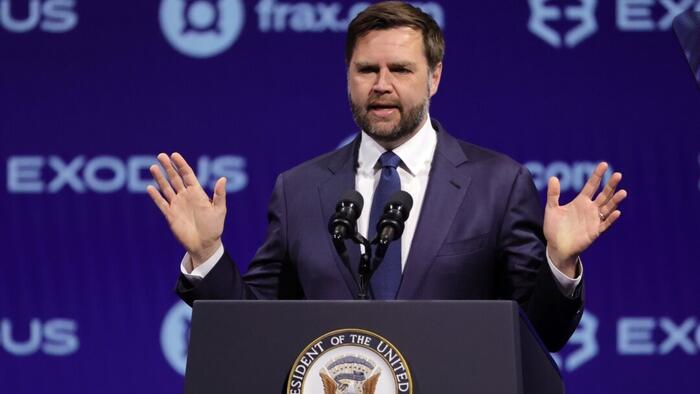


Authored by Catherine Yang via The Epoch Times,
Vice President JD Vance said that China’s aversion to decentralized cryptocurrencies like Bitcoin was one more reason that the United States should embrace the technology.
“The People’s Republic of China doesn’t like Bitcoin. Well, we should be asking ourselves, why is that? Why is our biggest adversary such an opponent of Bitcoin, and if the communist Republic of China is leaning away from Bitcoin, then maybe the United States ought to be leaning into Bitcoin, and that’s one of the things we’re going to be doing,” he said.
Vance was speaking at the Bitcoin 2025 Conference in Las Vegas on May 28 about the administration’s plans to bring cryptocurrency into the mainstream economy, the same day the Department of Labor rescinded guidelines warning fiduciaries against including cryptocurrency in 401(k) retirement plans.
He said that Bitcoin would be a strategically important asset, and that the United States should build on its advantage over the Chinese regime, as around 50 million Americans, soon to be more, own Bitcoin.
The Chinese regime banned cryptocurrency trading and investments in 2019, and its central bank in 2021 announced a crackdown on all cryptocurrency activity.
Vance said cryptocurrency, among supporters, represents “a hedge” against inflation and political persecution, referring to instances of people being denied financial services for their political views.
“With President [Donald] Trump, crypto finally has a champion and an ally in the White House,” Vance said.
“In our administration, we understand the full potential of the digital assets industry—not just as an investment, not just as a flashy technology, but as a symbol and driver of personal liberty for all our citizens.”
He also urged the crypto community to stay engaged in the public policy debate, as “what happens in AI (artificial intelligence) is very much going to affect, in good and bad ways, what happens to Bitcoin. And of course what happens to Bitcoin is very much going to affect what happens in AI.”
“And most importantly, I don’t want America to be negatively affected by what happens in AI,” he said.
Trump gained the support of crypto users during his campaign when he pledged to establish a Bitcoin national strategic reserve and turn the United States into the “crypto capital of the planet.” He signed an executive order to promote the United States as a leader “in digital assets and financial technology while protecting economic liberty” and creating an AI and cryptocurrency working group chaired by David Sacks, days after taking office.
In March, the president held a crypto summit at the White House, gathering key figures in the industry to discuss crypto policy.
The Senate has advanced cryptocurrency legislation that would require “stablecoins,” which are digital tokens whose value is pegged to another secure asset, to be issued by licensed companies.
Trump has rescinded other cryptocurrency rules.
In April, he signed a bill that overturned reporting requirements for those making digital asset transactions, and in March, the Office of the Comptroller of the Currency rescinded policy that had prohibited banks from some activities related to cryptocurrencies.
